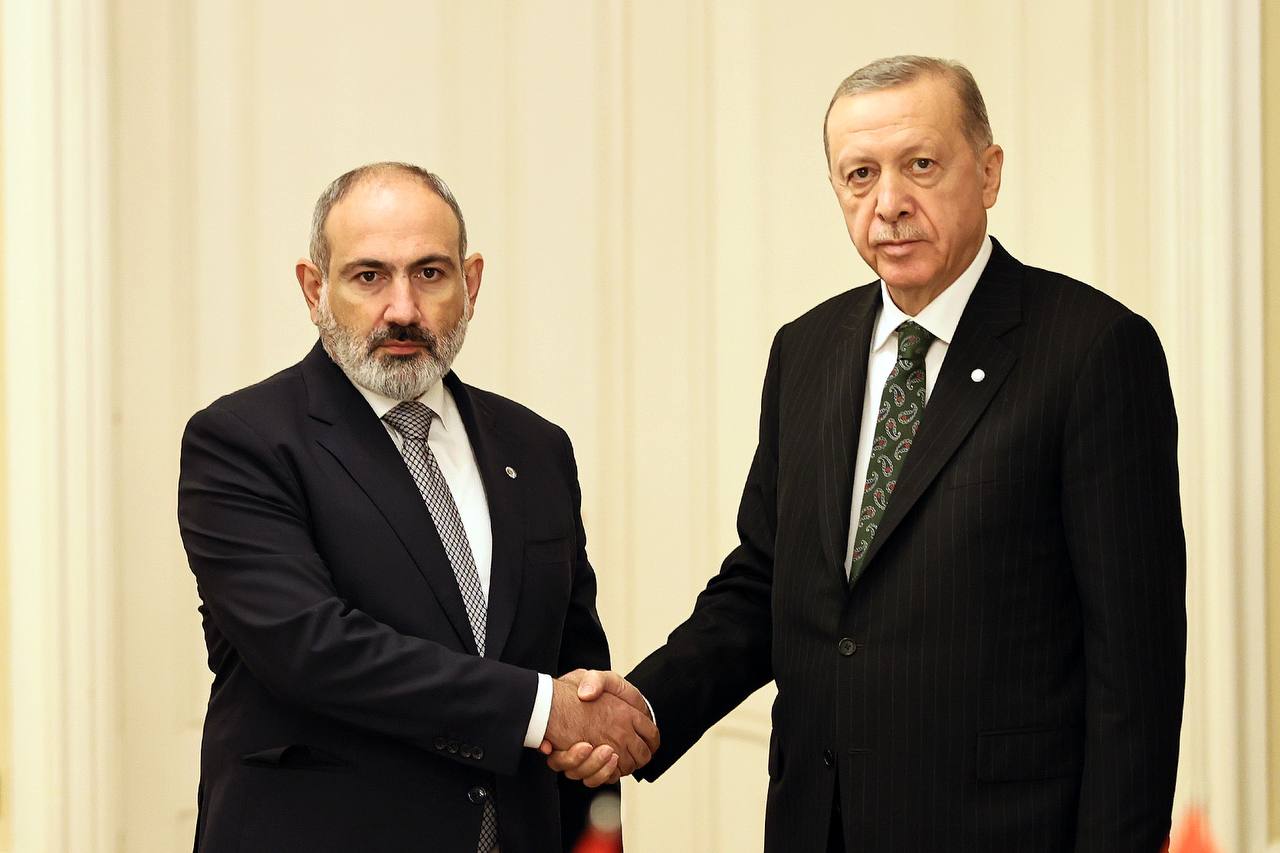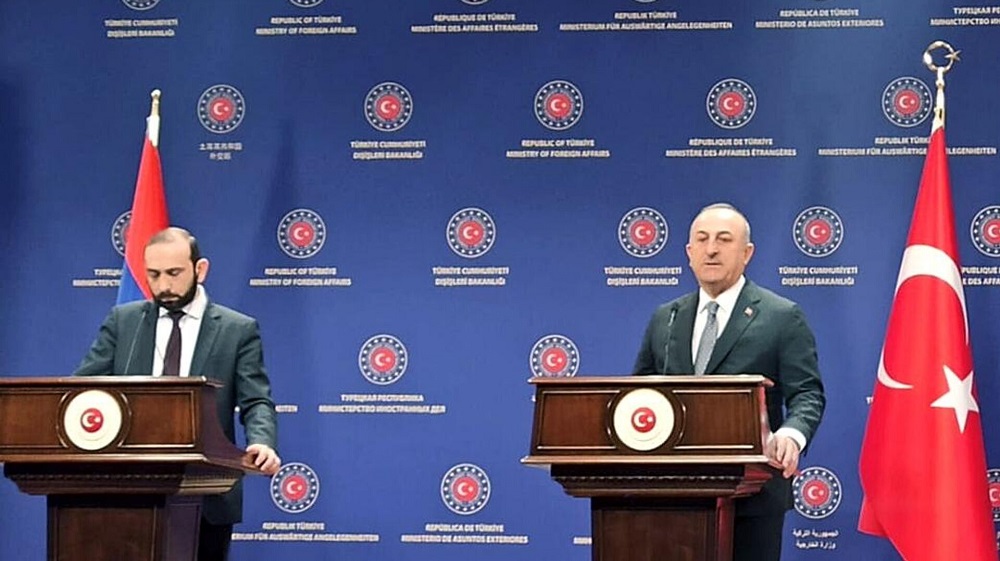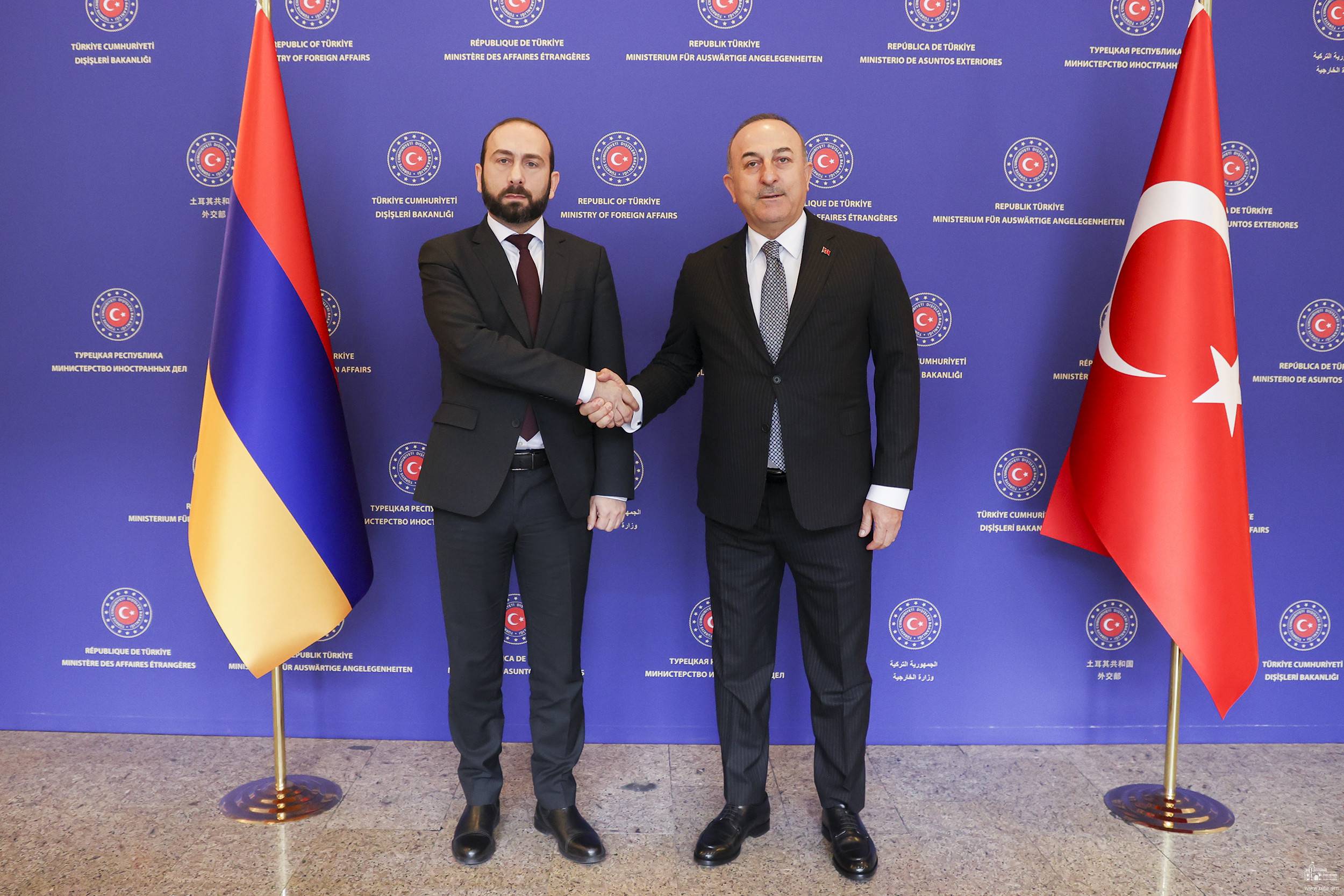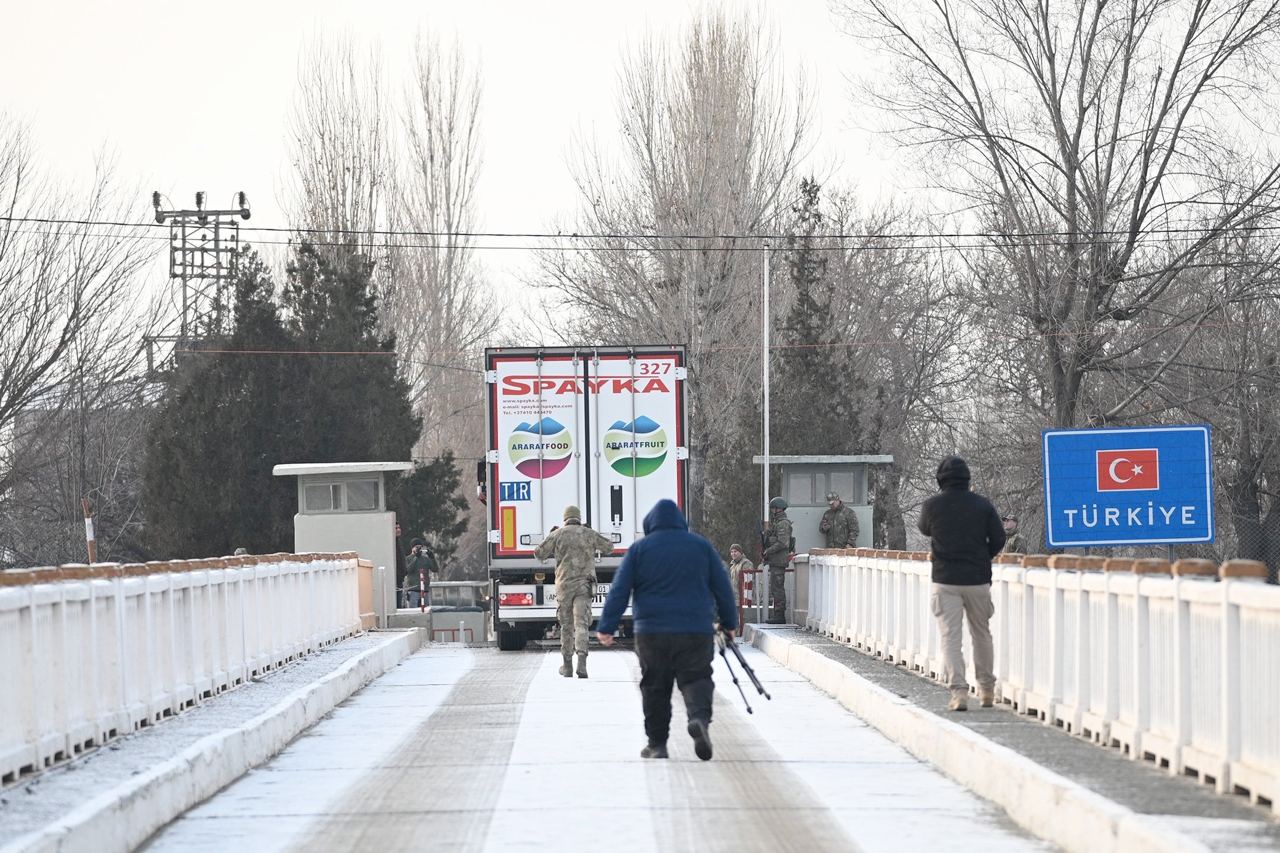The opening of the Nemesis Monument in Yerevan
Reaction to the Nemesis monument
Armenia and Turkey continue to discuss the issue of installing the Nemesis monument in Yerevan. Ankara considers the opening of the monument to the participants of Operation Nemesis a provocation, incompatible with the “spirit of the process of normalizing relations.” Turkey closed its airspace to Armenian planes flying to third countries immediately after the installation of the monument at the end of April. Now Foreign Minister Mevlut Cavusoglu has threatened that if the monument is not demolished, “Turkey will take other steps.”
The Armenian Foreign Ministry did not make an official statement on the matter. Deputy Foreign Minister Paruyr Hovhannisyan explained to journalists that “electoral processes are underway in Turkey, and many statements should be considered from this point of view.” But the Prime Minister of Armenia and the Speaker of Parliament issued excuses, stating that the decision was made not by the government, but by Yerevan City Hall.
Meanwhile, political scientist Hrachya Arzumanyan believes that Turkey does not at all intend to normalize relations with Armenia, and the installation of the monument is “just an excuse to reject the settlement process that has begun.”
“They dragged the Ottoman Empire into the First World War and organized the massacre of Armenians”
On April 25, a monument to the Armenians who carried out the Nemesis retaliation operation was opened in the center of Yerevan. It was developed by the Dashnaktsutyun party in 1919 as “an act of vengeance against the leaders of the Ottoman Empire who organized the genocide, as well as the massacres of Armenians in Baku in 1918.”
The monument to the participants of Operation Nemesis was opened in the center of Yerevan on April 25. This operation was developed by the Dashnaktsutyun party in 1919 as an act of retribution, “revenge against the leaders of the Ottoman Empire who organized the genocide, as well as the massacres of Armenians in Baku in 1918.”
The Armenian Genocide was a massacre in Ottoman Turkey in 1915. Prior to that, about two and a half million Armenians lived in the territory of the Ottoman Empire. As a result of the killings and mass deportation, more than half of them died. Armenia and several Western countries and organizations officially recognize those events as genocide. Turkey categorically does not accept this wording.
The operation of the Dashnaks was called “Special Case”, but the general public is better known as operation Nemesis, after the goddess of revenge in Greek mythology. Members of the secret group acted in different countries — the United States, Europe and Turkey, eliminating about two dozen organizers of the Armenian genocide.
Armenian on social networks recall that in 1918 the Turkish authorities, who replaced the government of the Young Turks, themselves decided to prosecute their predecessors, members of the Unity and Progress party committee.
They were accused of “drawing the Ottoman Empire into the First World War and organizing the massacres of Armenians.”
Armenians on social networks also recall that one of the participants in the Nemesis operation, Soghomon Tehlirian, who shot Talaat Pasha, one of the leaders of the Young Turks Unity and Progress party in Berlin in 1921, was acquitted by a German court and released in the hall court.
Yerevan Vice Mayor Tigran Avinyan, a fellow party member of the Armenian Prime Minister and a candidate for mayor, participated in the opening ceremony of the monument.
“Crimes do not go unpunished. But our goal should be to prevent possible crimes, to create mechanisms for bringing criminals to justice. This should be our main message,” he said.
In response to statements coming from Turkey, Yerevan City Hall reported that they were not going to demolish the monument.
“Forget about normalizing relations if you don’t remove the monument”
This statement was made by Turkish Foreign Minister Mevlut Cavusoglu. He said that this information was passed on to the Armenian authorities both through his special representative for the normalization of relations and through other channels, without specifying which ones. The Turkish diplomat announced that Ankara “will take other measures after they are submitted for approval to President Erdogan.”
Talking about the process of normalization of Armenian-Turkish relations, he said that Turkey “took certain steps, but Yerevan showed its insincerity” by erecting a monument.
“We didn’t put preconditions on the so-called genocide, and they didn’t. We cannot reach an agreement on this issue, so we left it in brackets, but the installation of a monument is unacceptable for us,” Cavusoglu stated.
Internal affair of Armenia or wrong decision?
Secretary of the Security Council Armen Grigoryan declared the opening of the Nemesis monument “Armenia’s internal affair” and added that “no one has the right to interfere in this matter.”
Although Grigoryan claims that this is an internal matter, the Armenian Prime Minister and the speaker of parliament have already issued statements justifying the decision to install it. Both said that the decision was made by the city authorities. Pashinyan also said that “the wrong decision was made”:
“One of the shortcomings of democracy is that the authorities or the head of government do not control everything and everyone. This happened against an emotional background and in a situation where many people in Armenia considered many traitors and threatened to shoot them for treason.”
According to the prime minister, the initiative to erect the monument appeared in December 2020, after the defeat in the Karabakh war, and was moving forward until April 2021.
“And everyone thought that in this general logic of “betrayal”, if we did not agree, we would be declared traitors. All of us, in fact, are guided by the same logic: to make sure that we are not suddenly accused of betrayal. But in fact, we are constantly betraying the state and national interests of our country,” he said.
In Parliament, he asked the deputies what Armenia would have lost or gained if this monument had not been erected.
At a meeting with journalists in Ankara, the Speaker of the Armenian Parliament Alen Simonyan stated that he does not want the erection of the monument to be perceived in Turkey as a manifestation of the state and foreign policy of Armenia or as an unneighbourly step.
A comment
National security expert Hrachya Arzumanyan says Turkey is using the installation of the Nemesis monument as an excuse:
“In fact, Turkey does not want and is not going to open the borders and have normal, peaceful relations with Armenia.”
He believes that the Armenian authorities are planning to improve relations with Turkey, without taking into account the true motives of Ankara:
“There will be no monument, there will be another story. Turkey shows that it is ready to improve relations with Armenia if the Armenian state completely abandons its essence and approaches.”
The political scientist believes that Turkey wants Armenia to give up its past, the memory of the genocide and give up its red lines.
According to Arzumanyan, the tough approach and demands prove that Turkey still sees Armenia as a threat:
“For a state with a population of 80 million people, the Armenians are not a quantitative, but a qualitative threat. Until we answer the question of what qualities of Armenians are perceived as a threat in Turkey, we will not be able to build real relations.”
The fact that Ankara is currently not ready to build relations with Armenia, according to the expert, is Turkey’s choice, and not the result of Yerevan’s wrong policy:
“And in order for Turkey to be ready to listen to us, we need to become stronger.”
Follow us – Twitter | Facebook | Instagram
Reaction to the opening of the monument “Nemesis”






















